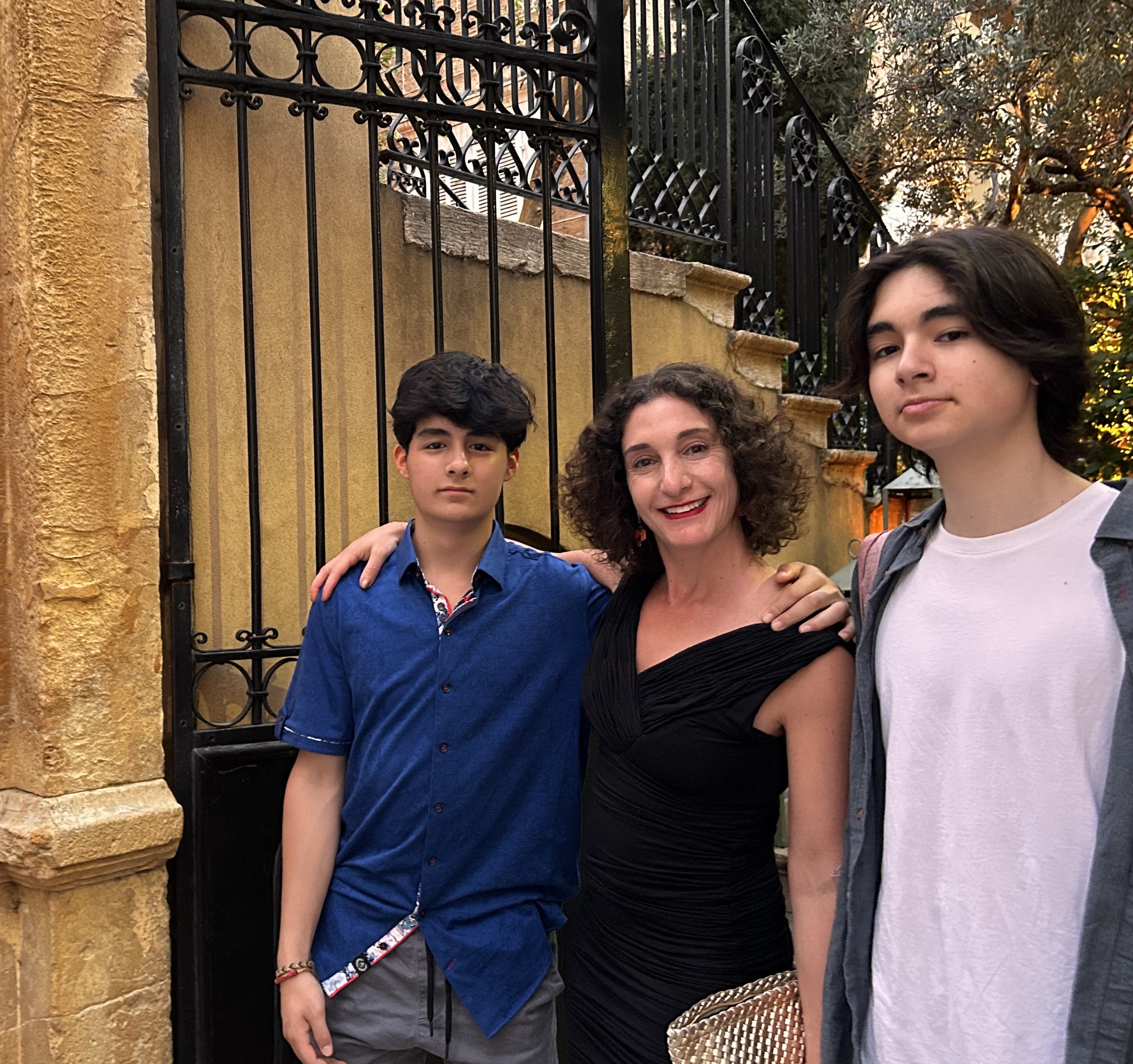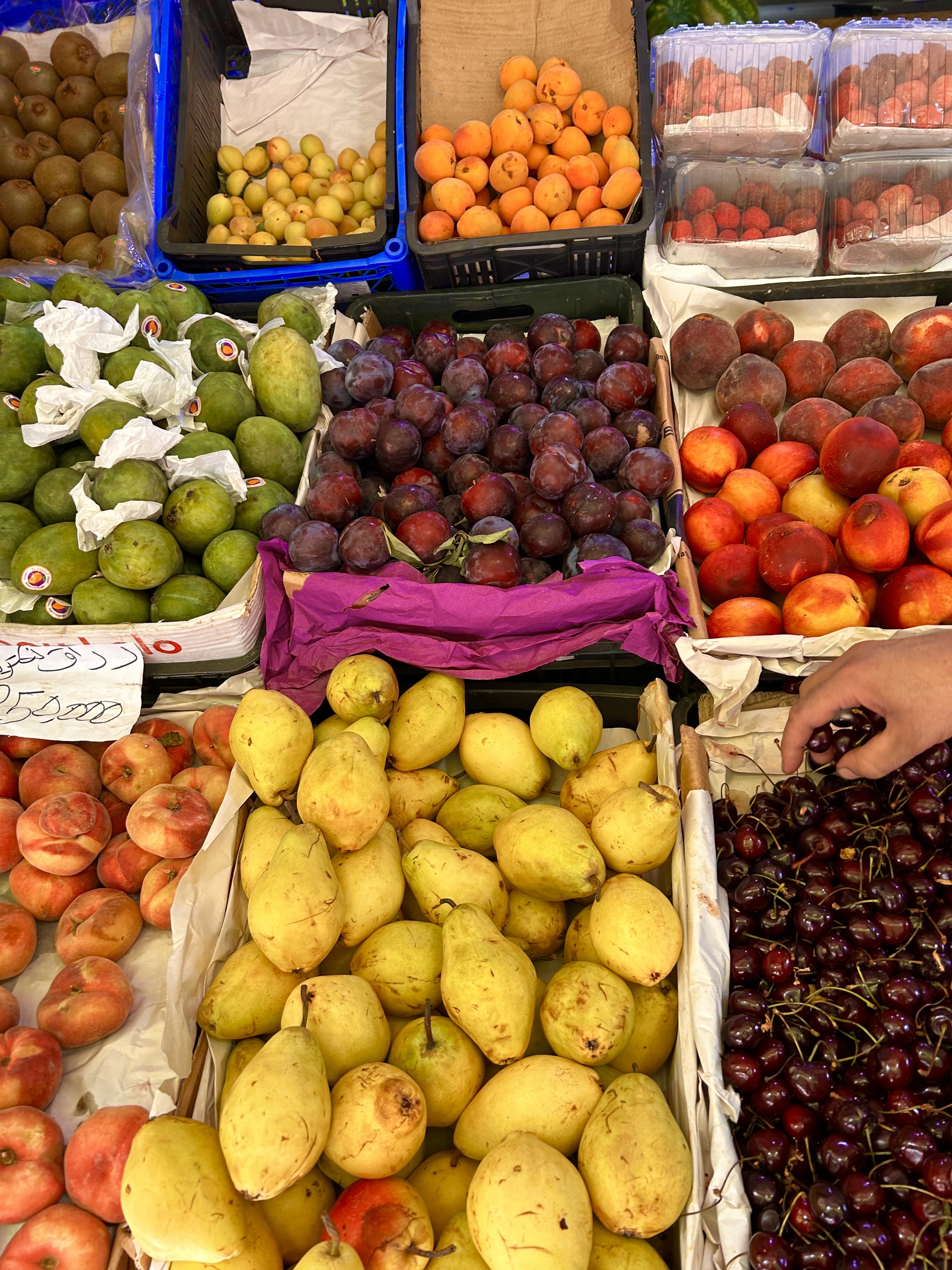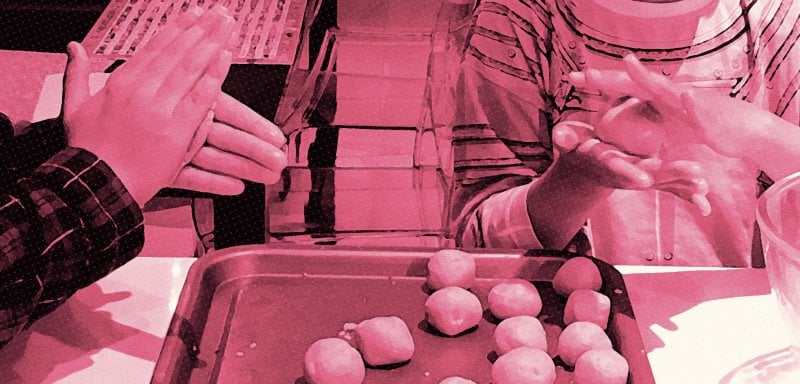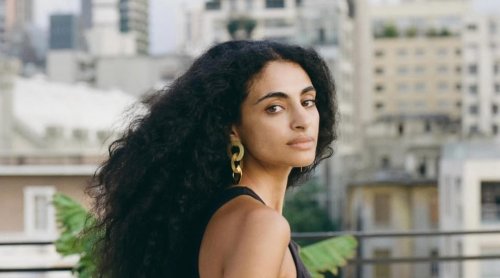My father was forcibly evicted from Haifa in 1948. At 20-years-old, he stood by and watched his father surrender the keys to their family home to the Israeli soldiers waiting outside. Stripped of their worldly possessions and their dignity, his family fled to Beirut. Upon arrival, he closed off his heart and mind to Palestine, burying the trauma and choosing to move on. His childhood, our heritage, were not topics discussed at home.
Don’t admit to being Palestinian.
For good reason; it was a dangerous thing to be a Palestinian.
I was born at the outset of the Lebanese Civil War. Growing up in a Christian Palestinian home in West Beirut, as it was known back then. I learnt that the small red cubes in our tabboulé might be called ban-dough-ra at home, but outside of our front door, it was strictly bana-doo-ra.
Remember that Angela. Practice it.
Being cross-examined at a grocery store about my background was one thing, but random searches at checkpoints, where the lilt in my tongue could easily slip up, had severe consequences. Young men, some of them still children, with kalashnikovs swinging on their shoulders like handbags, menacingly questioned drivers on the side of the road, subjecting them to more searches, more humiliation, instilling in them the fear that they might not be able to return home.
On separate occasions, my uncle and brother were kidnapped because they were suspected of being Palestinian. I remember how our cosy, safe home was upended when the call came through about my brother. I was eight but I can still hear the pitch of my mother’s shriek as I woke up that morning. My sister and our housekeeper rushed to her side, repeating that she was going to faint. I grabbed my teddy bear and wandered over.
“Call your father,” my mother hyperventilated between her sobs.
“Go back to bed Angela,” my sister commanded, shooing me away. “And don’t worry, everything’s okay.”
I couldn’t go back to sleep. I sat in bed trying to figure out what happened, mindful to stay out of the way. My brother returned a few days later because of our next door neighbour, an esteemed Lebanese judge who ordered his release. Meanwhile, one of my uncle’s captors recognized him as the same man who had offered his cousin a role at his insurance company.
Both men came back unscathed, save for the odd cigarette burn on their palms, and whatever they decided was best left unsaid.
Trained to hide my Palestinian roots, cloaking my wider Arab identity felt like a natural extension, an easy task. This came about after I left Lebanon, or, more accurately, was forced to flee, and became a migrant—a permanent status; once a migrant, always a migrant. I was 12 and we were lucky enough to have an escape route from the war in Lebanon which had literally arrived at our doorstep.
In Belgium, I quickly learnt that being an Arab was not something I could freely be. To my new friends, Arabs were either terrorists or victims––either blowing somebody up or getting blown up ourselves. On a school trip to a museum, my friends pointed to the graffiti on the walls. One message read Les Arabes - Dehors! “Arabs: Out!” Everybody laughed. “Don’t worry, we don’t think of you as an Arab,” a classmate reassured me. I joined in the laughter.
Home after Belgium was the United Kingdom, where I went on to study Law, further distancing myself from my memories of Beirut. My visits back to Lebanon, where my mother had returned to live after she’d been widowed, grew briefer and as infrequent as I could get away with.
In Belgium, I quickly learnt that being an Arab was not something I could freely be. To my new friends, Arabs were either terrorists or victims–either blowing somebody up or getting blown up ourselves.
“Don’t worry, we don’t think of you as an Arab,” a classmate reassured me. I joined in the laughter.
I found it unsettling being back in our old home. Once so vivacious and buzzing with energy, now old, tired and eerily quiet. My now broken Arabic was a source of amusement, as were my ideas, my conversations, and my solitude (I didn’t have any choice, I’d lost touch with my childhood friends). I didn’t belong there anymore, if I had ever belonged in the first place.
I think I could have happily carried on, so seamlessly assimilated that my roots were buried deeply underground, all but forgotten.
Then a call came through early one morning from Beirut. My sister told me that my mother had passed away. I knew that losing her would also mean losing my connection to Lebanon, the only reason why I had to go and visit. It was a farewell to all of that. I left my sons, who were two and four at the time, in the care of their father and flew back.
Unearthing
In my short week there, and in particular during my mother’s akhed bil khatter, her mourning days—a ritual which, at first, seemed so archaic and unnecessary to me—I was amazed at the outpouring of love. Her friends came up to me to give their condolences and share stories of her with me. One of them said “I loved your mother like a sister and I’ve loved you like my own daughter, I can’t replace her but I can be your mother now.” My cousin’s wife, Paty, someone I barely knew then, was by our side the whole week, turning up with food when we needed it. She shared how much she had loved my mother, cherished her kindness and hospitality and having lost her, she’d gladly transfer that love to me. Paty is one of the reasons why I now go to Lebanon at least once a year.
These statements, the unmitigated show of love, stayed with me. And when I came back to London, leaving all that behind hit me hard. The contrast between Beirut’s extravagant emotions and London’s clinical and cold atmosphere made me realize that I didn’t ever want to say goodbye to Lebanon. I needed it for my heart to continue beating.
There was no one I could talk to about my mother in London, no one who knew her. My boys saved me. With them, I could be as emotional as I wanted. No awkwardness, no judgement. I could cry freely and get a hug whenever I asked for one. I had two pairs of tiny hands to hold. On my mother’s first birthday after she had passed, I felt rotten. So that day, instead of going out, I set about making manakeesh with my two kitchen helpers. I didn’t know whether they’d like the taste of za’atar but decided to introduce it regardless.
Within minutes, the three of us were covered with flour, as was every inch of the kitchen counter and the floor. And whilst we rolled the dough, I found myself telling them stories about their teta. They kept asking questions, wanting to know more. Inside, I could feel the tectonic plates shifting.
As the manakeesh baked, my house filled up with the warm homely scent of dough baking in the oven along with the zesty, irresistible aroma of za’atar. I felt at peace, it was as if my mother was there, holding my hand. When they were ready to eat, the three of us sat down, me feeling nervous about their reaction knowing that this moment mattered so much, for then and for what was to come after.
They loved it.
 Angela and her sons in Beirut. Photo courtesy of Angela Zaher (@angela_zaher).
Angela and her sons in Beirut. Photo courtesy of Angela Zaher (@angela_zaher).
Angela and her sons in Beirut. Photo courtesy of Angela Zaher (@angela_zaher).
“More please,” the words every cook wants to hear. That was it. I knew that my kitchen, the place where my mother had spent most of her life, would lead me back to her. I remembered her turning our home into a ma’amoul factory in the lead up to Easter, inviting friends round for the day to make a production line. Those images of the happy women, chatting all day, laughing, some with cigarettes hanging out of the corners of their mouths, left a lasting imprint.
I set about recreating the taste of my childhood for my children. It turned out that my hands, guided by my heart, produced Palestinian and Lebanese food, time after time. My roots had come to claim me.
And I finally understood my mother in a way I hadn’t whilst she was alive. If only she knew that now that I had my family, my favorite part of the day, every day, was exactly the same as hers had been: the time when we’d sit down for dinner that night, eating together and feeling the unmatched closeness that sharing a meal with somebody brings.
Those images of the happy women, chatting all day, laughing, some with cigarettes hanging out of the corners of their mouths, left a lasting imprint.
I set about recreating the taste of my childhood for my children. It turned out that my hands, guided by my heart, produced Palestinian and Lebanese food, time after time. My roots had come to claim me.
Before long, I went from hiding to flaunting my Arabness. I wrote about it for newspapers and magazines, championing Arab restaurants, chefs and food writers (women in particular), publishing recipes for moghrabieh and ma’amoul in food journals. In my parents’ absence, I felt like the least I could do was instill in their grandchildren a culture I wanted them to be proud of. The capacity to feel emotions deeply, and express them freely. To be able to laugh, and cry, out loud. And above all, the understanding that the more kindness you show, the more you’ll receive in return. Perhaps this is not an exclusively Arab trait, but it’s certainly one of the most remarkable aspects of who we are.
Losing the anchor that was my parents left me drifting. But in that sea, I found other hands to cling to that guided me back to shore. And once there, I needed to replant the roots that my parents left me with. From my father, I paved the way back to Palestine. From my mother, I harnessed the power of food, to express love, kindness, and make others happy.
I was roaming the streets of Beirut whilst on holiday there last summer, while my boys—teenagers now—were enrolled at a summer camp run by the American University of Beirut. I stopped at a fruit stall, mesmerized by the abundant, beautiful produce on display. I asked the greengrocer if I could take photos. He looked at me with bemusement, not accustomed to these requests. Walaw, akid. Of course, he said.
 Photo courtesy of Angela Zaher (@angela_zaher).
Photo courtesy of Angela Zaher (@angela_zaher).
Photo courtesy of Angela Zaher (@angela_zaher).
An elderly man walked by slowly clinging to the hands of a disabled boy who was excitedly pointing to the various fruits and naming them. They paused briefly to say hello and exchanged some chit chat. And then, like an afterthought, the greengrocer yelled after them.
“Let me put some cherries in there for you amo,” he said, addressing the boy who was now so animated he was smiling with his entire face, “they just came in this morning.”
No money was exchanged between hands. Nobody dies of loneliness here.
Raseef22 is a not for profit entity. Our focus is on quality journalism. Every contribution to the NasRaseef membership goes directly towards journalism production. We stand independent, not accepting corporate sponsorships, sponsored content or political funding.
Support our mission to keep Raseef22 available to all readers by clicking here!
Interested in writing with us? Check our pitch process here!




